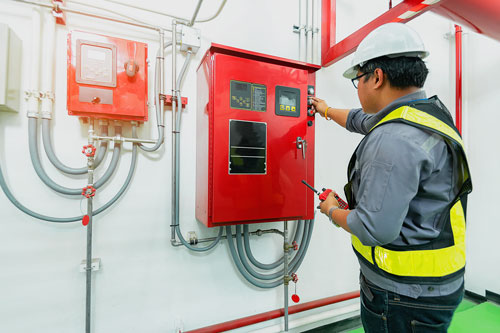Fire Hydrant Inspections in British Columbia

What is required for fire hydrant inspections—when fire hydrants are on your property—is governed by both the BC Fire Code, readily accessible online, and the NFPA requirements. The NFPA is the National Fire Protection Association, a global non-profit whose mission is to reduce injury, death, and property loss due to fire around the world. The NFPA sets standards and codes that are respected internationally for fire safety in the work environment.
Basically, if fire hydrants are on your property, then you are responsible for their inspection and maintenance. Their attention require the following:
Fire Hydrant Requirements on Your Property
Inspection after each use. And…
Inspection every six months. And…
Must be easily accessible and free of obstruction for use by fire fighters if needed. And…
Must be clearly identified.
The twice yearly inspection must include the following:
Visual inspection for leaks and rusting before and after flushing.
Full tear down to check for internal damage, gasket and thread conditions.
Replacement of components if needed.
Painting if needed.
Lubrication of nozzle caps.
Documentation is required of all of the above.
Please Note: Any connections to a fire hydrant require a permit from the local fire department and municipality.
All records of the above need to be kept neatly and available for inspection by the city or fire department.
If you need some help with the maintenance of your fire hydrants on your property, call the experts at Van Fire in Richmond, BC, to help you at (604) 706-0306




